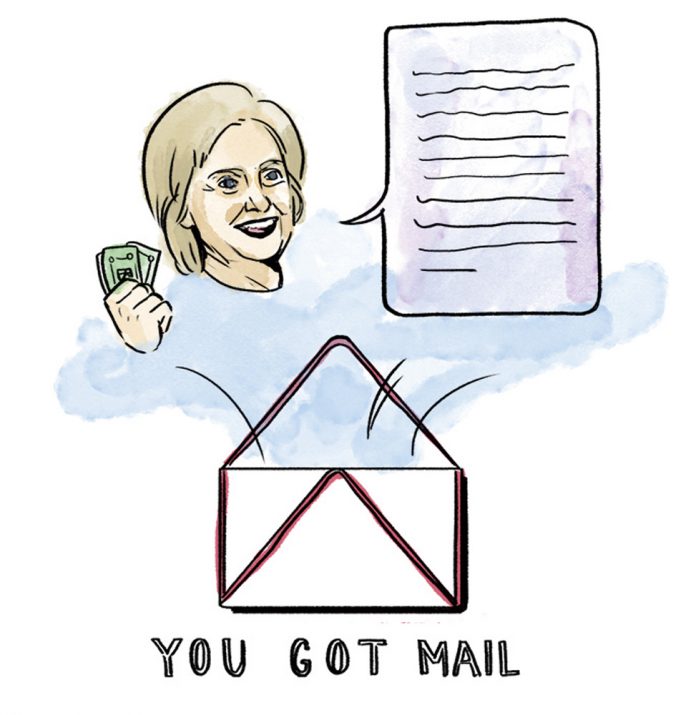Arturo Samaniego
Much critique has been made over the recently released batch of emails from Hillary Clinton’s campaign chairman John Podesta. To some, these emails signal corruption, a politician paying only lip service to the needs of the people while mingling with the financial elite behind closed doors. To others these emails are nothing more than an overblown distraction, an attempt by right-wing conspiracy theorists and those in the Donald Trump camp to create scandal where none exist.
These emails paint a picture of Clinton that largely aligns with what we already know, but at the same time offers some new insight. What Clinton has said in private paid speeches regarding the economy mostly parallels her public stances and overall pragmatic nature. Meanwhile, her off the record interview sheds light on an introspective Clinton. Still beneath the exaggerations of Clinton engaging in political cronyism, there are some valid points of criticism.
As reported by CNN and Vox, one line of the hacked emails that jumps out comes from a speech to bankers at a financial firm concerning why regulations such as the Dodd Frank act were passed, stating that members of Congress could not, “sit idly by and do nothing” as anti-Wall Street fervor took hold in the public and media. Clinton gives the impression that regulation came from public pressure rather than genuine desire for reform.
The line seems to indicate that Clinton truly cares nothing for reform, and merely panders to whatever audience she is speaking to. Though this may be the case, it is important to remember that Clinton is stating the truth to an extent. The political climate following the recession pushed lots of members of Congress to seek regulations merely for political gain.
Some of Clinton’s other words in the emails are less easy to dismiss, such as a statement cited by Vox in the previously mentioned article, in which she tells a banker, “there is such a bias against people who have led successful and/or complicated lives:”
It is here where many people, including myself, grow frustrated with Clinton. Though Clinton is known for her pragmatic nature, the statement just cannot help but seem a bit dismissive of the legitimate concerns people have with Wall Street, writing them off as jealousy from the lower classes.
A final interesting note is some of the remarks made by Clinton in an off-record interview with Mark Leibovich, as reported by POLITICO. In the interview, Clinton states, “And so I’m trying to let people into my life, I’m trying to relate to people.” To me, this shows a different view of Clinton, one that conflicts with the secretive and cold persona she is often so made out to be by the media, and the public at large.
Clinton goes onto to recognize some of the challenges she faces as running to be the first woman president, stating “I’m damned if I do, I’m damned if I don’t” when it comes to how forceful should she be when pursuing the job. To me, this was one of the most insightful and reflective lines espoused by Clinton in the emails, as she takes note of the line she must thread in a society that often holds an unfair bias against strong, assertive woman.
Overall, Clinton’s emails do not display any earth-shattering revelations over her character. There are fair points of critique to be made over her statements to Wall Street donors, but they still largely align with the stances she has taken in public. Meanwhile, while many claim that the emails reveal Clinton’s true corrupt nature, taking a look at the emails paints the portrait of a thoughtful and reflective woman.
Voters will have to decide for themselves what to take away from these emails. I, for one, will go into the ballot box a bit disheartened over some of Clinton’s statements in concerns to Wall Street, but nonetheless confident that she is the candidate best suited for the presidency.











